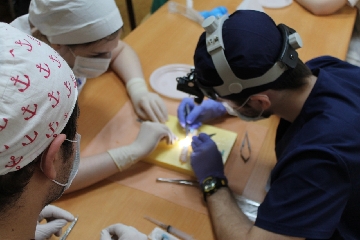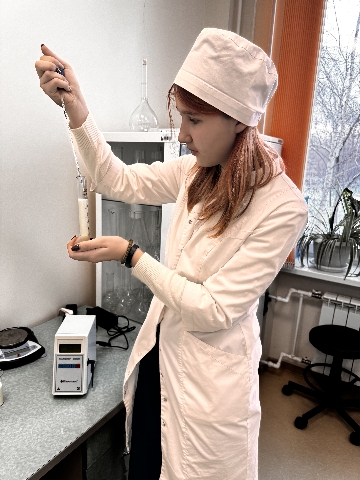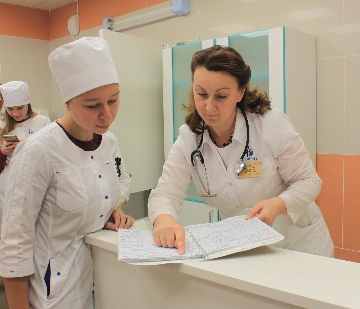General Medicine

Accreditation. State accreditation. International accreditation (the Independent Agency for Accreditation and Rating IAAR).
Awards and achievements. For several years, the program has been recognized as the best educational program of innovative Russia.
Every year, students get the Russian Government and Russian President scholarships, speak at all-Russian and international conferences, win federal and regional grants; participate in socially important projects aimed at import substitution and proactive import substitution in medical technologies.
Teaching staff. The academic degree holders ratio is 87%, and 40% hold an academic degree of Doctor of Sciences. The teaching staff includes one Academician of the Russian Academy of Sciences (RAS), one Corresponding Member of the RAS, five Honored Science Workers, 22 Honored Doctors of the RF, seven Honored Workers of Higher Education of the RF, two Honored Healthcare Workers, and Excellent Workers of Public Health. The university develops academic staff mobility. Leading researchers from Russia, Germany, France, and the CIS countries are engaged in the teaching process.
Learning outcomes. Students gain necessary competencies regulated by the professional standards of a physician as well as competencies in IT and digital healthcare development.
Facilities and resources. Practice-oriented and modular training, project activities, development of new digital competencies for IT medicine, active and interactive teaching methods, simulation technologies (computer-aided dummy robots, virtual simulators of the 7th level of realism), collaboration with the Breakthrough Research Center, the research and production technology park as well as the research and education centers.
Research. Brain function research, a brain-machine interface, biotechnologies, minimally invasive surgery with monitor visualization, three-dimensional modeling of morphology of internal organs and surgeries with printing of customized prostheses, bioprinting, AR and VR simulators for treatment and rehabilitation of patients.
Competitive advantages. Individual learning paths for students, development of international cooperation and academic student mobility, internships at foreign clinics as part of the IFMSA program.
Career prospects and employment. The university cooperates with the leading medical organizations in Russia that provide recruiting services, which facilitates rapid and high-quality graduate employment. Numerous continuing professional education programs and advanced training programs make graduates competitive among medical personnel at leading medical institutions in Russia.

